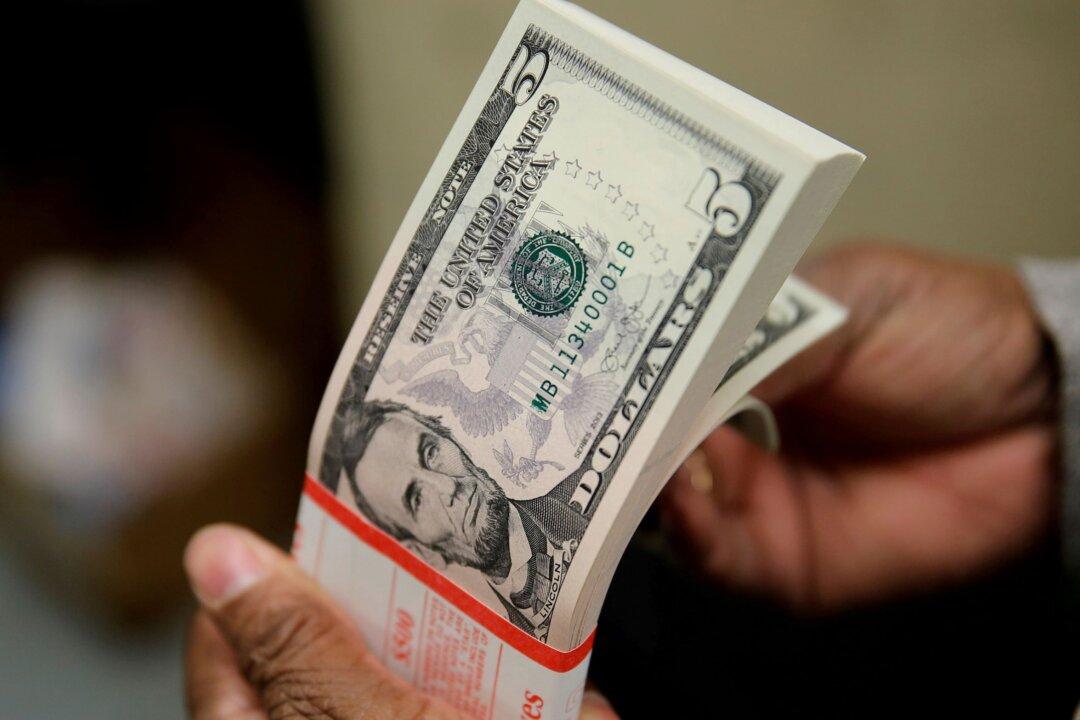NEW YORK—Speculators’ net long positioning on the U.S. dollar in the latest week soared to its highest level since mid-June 2019, according to calculations by Reuters and U.S. Commodity Futures Trading Commission data released on Friday.
The value of the net long dollar position was $23.99 billion for the week ended Nov. 30, up from net longs of $22.11 billion in the previous week. U.S. dollar net long positioning rose for a second straight week.





